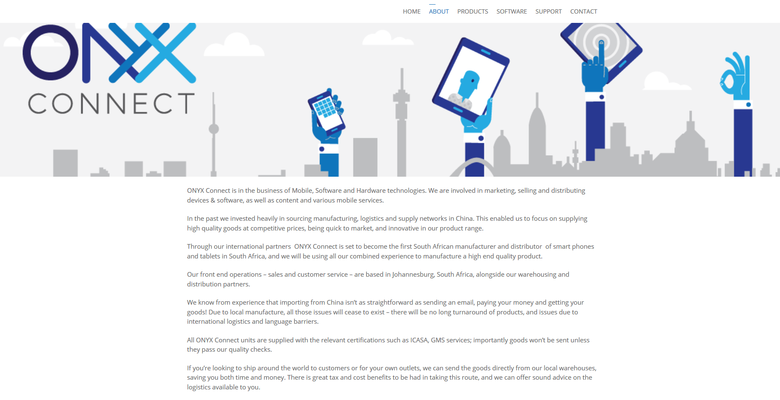Startup of the day (November 2017)

Continuing the series of Startup of the Day digests, today I present the most interesting projects for November. If you want to get acquainted with the rest, then I ask in my blog. Entries are available on Facebook , ICQ and Telegram .
Ycloset
Startups all over the world are trying to launch a service for renting clothes, I have seen such presentations dozens of times, the idea lies on the surface. Chinese YCloset implemented it and brought it to a significant scale.

Mechanics is a classic subscription: a girl pays 500 yuan ($ 75) and holds three things at once. You can go through the wardrobe indefinitely, even though every day call the courier while she pays a subscription, it's free. The choice of clothes - 60 thousand items, in Lamoda, for comparison, a little more, but the scale is the same. Of the brands I know, Zara works with YCloset, and journalists write that the average retail price of an item in the service is 1,500 yuan - in an amateurish opinion, the amount seems overpriced, but I will not argue.
For those who already spend a lot on clothes, the deal looks great. The subscriber pays the price of four items for a year, keeps three at home and changes them at least for every publication - this is clearly more effective than a regular store. While a startup is taking things from brands for free - for them this is a way of advertising, but let's say it will someday buy with a three-fold discount from retail. Suppose also that dresses live a year, and then the fashion changes. Under such conditions and the perfect utilization of the assortment, YCloset will spend exactly a quarter of the proceeds on the clothes themselves, in reality, probably half. The remaining 37.5 dollars a month with a margin will pay off two to three or four courier trips and the same number of washings, and they will change less often at large volumes, they will play enough and get tired, the economy on a scale looks working.
It is curious that the biggest operational difficulties arose with washing and cleaning, in the typical presentation of the idealist startup, there was not a word about them. YCloset fully takes on these chores, and it is organizationally difficult for him, as a result, they even merged with one of the specialized companies.
Startup is two years old, the investment received $ 70 million, 50 of them in a recent round. He does not speak about plans to expand to a male audience.
Braavo

Business plans for mobile games are built according to one scheme: the cost of attraction, the conversion into a payer, the average check and the return rate are combined with each other according to a simple formula and confidently predict success or lack thereof. Braavo Capital has automated this analysis to offer financing.
The game company gives BC access to the accounts in the analytics and the advertiser's dashboards, the Braavo algorithms estimate that marketing is repulsing, and immediately approve the credit line. As soon as CTR or retention creeps across the red line - everything, stop the car, we don’t give more money. Loan payments are automatically deducted from the money transferred by the store, Braavo customer’s business usually understands better than the owner himself - the risks are minimal. As a result of confidence, the terms of financing are better than those of a bank that does not understand the mobile game economy and is afraid of everything. Moreover, BC is cheaper than a traditional venture capital fund - it ultimately wants a return of 3x, or even 10x, no matter how you arrange it. Another advantage of the new approach is the speed of decision making,
Auto-financing startups for auto-financing have not yet been invented; BC itself has traditionally raised investments. The last round amounted to $ 70 million, but this number is not as large as it seems: most of the amount is a commercial loan in working capital, and not an investment in the development of the company.
Matroid

Hanging the camera now costs a penny, it’s much more expensive to constantly look at it, so as not to miss the interesting moment. For many years, a startup was asked with observers from conditional Bangladesh, who looked after order in the USA. A local dear security officer would run out only in case of problems, that is, almost never, out of ten nine would have been quietly fired. I don’t know if this was launched in reality, but Matroid made a more progressive decision.
In his model, instead of a living person, AI looks at the video stream. Universal settings do not exist, each client is looking for their own interests, someone is important to any people near the forbidden door, someone someone specific person. In Matroid, the buyer uploads his own samples to train his unique neural network and includes it for his camera. Successful grid settings can be shared with the world, while it seems to be on pure altruism, but in the future, probably, it will be possible to earn.
Startup price looks modern, with open rates, a free minimum for trial and payment by card. Wholesale 1000 seconds of recognition costs 40 cents, translated into an eight-hour working day comes out $ 250. Now this is comparable to the final price of a living person in Bangladesh, but it scales much better and will become cheaper in time, rather than becoming more expensive. You can’t even compare these numbers with the cost of renting a server; the unit-margin of Matroid is excellent.
Although customers come from the street with arbitrary tasks, Matroid itself purposefully seeks consumers in certain sectors. In addition to obvious security, now he is actively offering television monitoring for large companies in search of displays of their logos and top officials.
It is curious that the startup looks very cool and modern, but there are no breakthrough technologies inside, the libraries are used by others, everyone can repeat the web interface with billing. The product is already ready, while investments have so far been spent only $ 3.5 million, 10 were raised in the last round, but this is for future marketing, not development.
Simple contacts

Telemedicine hardly finds B2C niches with real treatment for patients, but it fights against strange bureaucracy. US regulations only allow prescription contact lenses, with a limited duration. Myopic and farsighted people, even with stable vision, regularly go to the doctor, spend their time and money on this only to get a completely identical piece of paper each time.
Simple Contacts transfers the visit online: the patient puts a lot of checkmarks about his absence of complications and complaints, after which English analogues of SB and MNC appear on the screen of a smartphone or computer. The results of the automatic test are signed by a licensed doctor, if everything is ok, then the old recipe is confirmed, the user buys his favorite brand of lenses directly in Simple Contacts.
For a vision test, a startup takes $ 30. If we assume that the optometrist signs in 5 minutes, then $ 20 of them is margin. The online store works with market prices and commission, but potentially earns more than competitors - it should have higher customer loyalty, they have saved money and, most importantly, time for visiting an offline doctor.
Investment Simple Contacts raised $ 10 million; in addition to marketing, expanding the license for the test eats a lot of money - reducing the list of contraindications, etc.
Onyx

The trend of the last decade is the unification of everything and everything in a smartphone. Previously, taxis were called by hand, in the store they paid with a card, and they didn’t take pictures of food at all - now applications on a smartphone do all this. Onyx goes against the tide and materializes one of the standard applications - communication in walkie-talkie mode, woki-currents.
The device looks like a circular disk the size of a palm, users cling it to clothes, usually to the chest, but it can also be on the shoulder or somewhere else. We saw a similar form factor in dozens of sci-fi and fantasy films; in Captain Power, the suit turned off from a similar button, for example. The Onyx signal goes to the smartphone via Bluetooth, and then to the interlocutor via the Internet.
The gain compared to the application is the number of clicks. To say something, just touch your chest with your hand - and you can say, compare this to "pull the phone out of your pocket, unlock, find the application you want, launch, press the button inside it." On the other hand, the trend to unify everything in the smartphone did not appear from scratch, the Onyx disadvantages are also obvious: a separate device and a separate charge, and the price is more than $ 100 apiece instead of an advertising model or a couple of bucks.
Such inconvenience pays off only with constant use, among private individuals they are only some kind of super-romantic couple or a very anxious mother, for 99.9% of the population an ordinary messenger is enough. The main startup market is B2B. Companies buy Onyx for line employees working with their hands, a typical conversation is something like “Hey, somebody, are there still red tubes in the warehouse?” Saving seconds can be justified even directly economically, the time gained by the loader is really money. In addition, if we are talking, for example, about cashiers, then their use of Onyx looks much more advantageous for the eyes of people in the queue.
The startup wants to develop in the direction of automatic translation for communication of Hispanic employees with English speakers and bots with answers to standard questions. It looks like an attempt to cling to the AI-hype, but the company received a round of $ 18 million for these plans.
